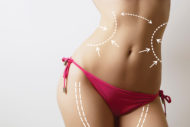How will you prepare for the liposuction procedure?

Liposuction is a surgical procedure that has seen a steady increase in recent years. Just like any surgical procedure, liposuction needs preparations from the patient and the doctor. Your doctor will advise the steps that you need to follow depending on factors such as your health.
This article will cover the preparation procedures for rehabilitation and healing.
Before you undergo the procedure, your certified plastic surgeon will require you to take some steps. You need to follow the steps strictly for you to get your desired results.
It will require you to follow the following steps;
Get a blood-workup
The principal reason they require this is to ensure you as the patient is fit to go under the knife. A blood workup will show your doctor your blood count. A blood count shows the hemoglobin and hematocrit levels. The test will enable your doctor to determine if you’re anemic. With any surgery, there is a sizable amount of blood loss and patients who suffer from anemia are very sensitive to blood loss on the operating table.
Another important reason for a blood workup is to advise the doctor on your coagulation panel. This communicates to the doctor if you will clot normally. The ability to clot normally will reduce postoperative bleeding and bruising.
Other medical tests per your doctor’s instructions
Your doctor may require additional tests for your procedure depending on where the procedure is being performed.
Face and neck liposuction
For the face and neck liposuction procedure, the doctor will require either a computerized tomography scan or a magnetic resonance imaging scan. These scans help the doctor determine the irregularities, which can affect the results from the procedure. Some of these irregularities may include a thyromegaly (this is an abnormally large thyroid gland), or a branchial cleft cyst (a condition whereby lumps form on one or both sides of the patients’ neck).
Upper arm liposuction
If one is to undergo a liposuction procedure of the upper arm, you will require a series of smaller tests such as the quantitative test. The quantitative test requires a patient to extend their arms out and then bend them at the elbow.
Another test for the upper arm liposuction is the pinch test, where the surgeon will look for the fat content under the patient’s skin. This is a 1.5 centimeter of fat when the arm is extended out horizontally and 90 degrees when the arm is bent at the elbow.
Abdominal liposuction
This is a procedure of the lower abdomen where fat may accumulate. An additional test for this procedure is the radiography tests and the electrocardiogram tests.
Lower body liposuction
The doctor may decide to get a chest x-ray for someone who hasn’t had one done for more than a year and someone who is a habitual smoker. The surgeon will also require a radiograph for a middle-aged individual and if someone has underlying health conditions such as diabetes or high blood pressure.
After these tests are done and they satisfy the doctor, the surgeon will move forward with the surgery.
Pre-operative counseling
Counseling is not a requirement for plastic surgery, but one needs to get a detailed risk and benefit breakdown of the surgical procedure before the surgery.
The doctor will also need to know your motivations to undertake plastic surgery. The doctor will need to understand that you are not using the surgery for the wrong reason and will advise other non-invasive procedures if need be.
One thing we all need to understand is that plastic surgery is purely an elective procedure and most insurance companies will not cover these procedures.
Recovery
After the surgery, it will require the patient to take weeks to months to enable the body to undertake and complete its natural healing process. Your surgeon will advise you on the period they require you to rest for the healing process to take place.
Some of the natural healing requirements will involve a balanced diet, regular walks, and rest. Do not rush to your normal activity after surgery, as this may lead to post-surgery injuries and complications.
Conclusion
Any surgical procedure carries with it risks, and one needs to be very careful before undertaking an elective surgical procedure such as plastic surgery.
However, this may not be avoidable when one needs plastic surgery for unavoidable health conditions.
Finally, you need to listen to your doctor’s advice before, during, and after the surgical procedure.
For more information :-https://www.elitebodysculpture.com/our-locations/minneapolis